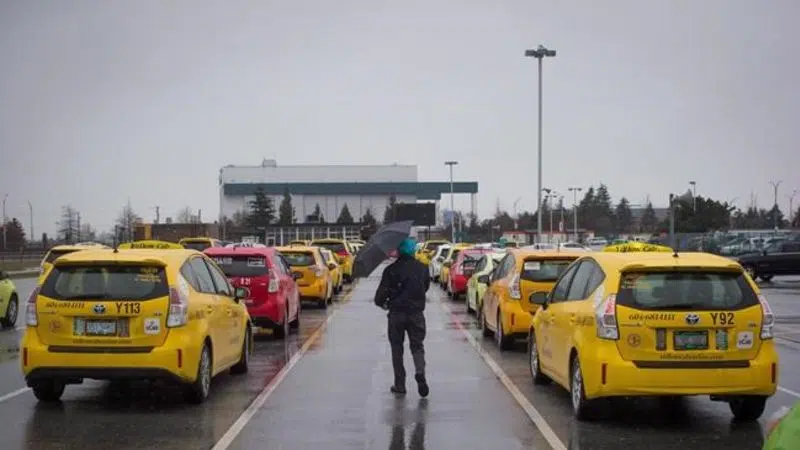
B.C. taxi industry challenges ‘destructive competition’ from ride-hailing apps
VANCOUVER — A coalition of nine taxi companies has asked British Columbia Supreme Court to quash policies it says were illegally created for ride-hailing companies but the province’s transportation minister says she doesn’t expect the legal challenge to halt the start of the services.
The Metro Vancouver cab companies say in their petition that the Passenger Transportation Board had no authority to set binding guidelines for ride-hailing services before hearing individual applications to determine whether they should be issued a licence.
The board announced policies last month allowing so-called transportation network services an unlimited number of vehicles in broader geographic areas compared with cabs, which the taxi industry says amounts to “destructive competition.”
Transportation Minister Claire Trevena said Thursday eight ride-sharing companies have filed licence applications with the Passenger Transportation Branch of her ministry. The applications are then forwarded to the board.
